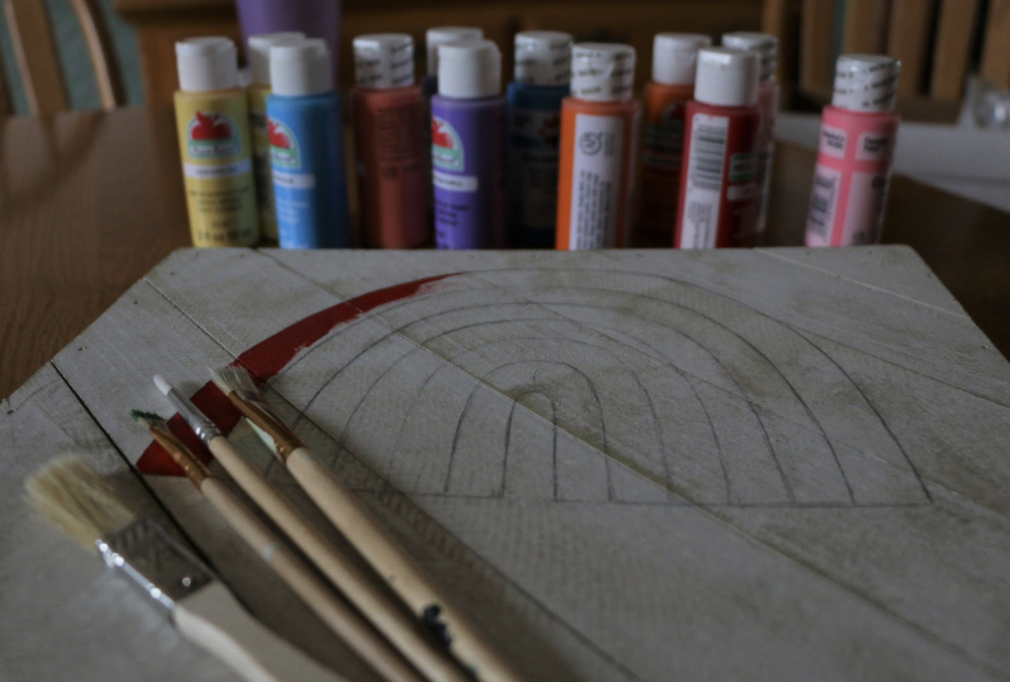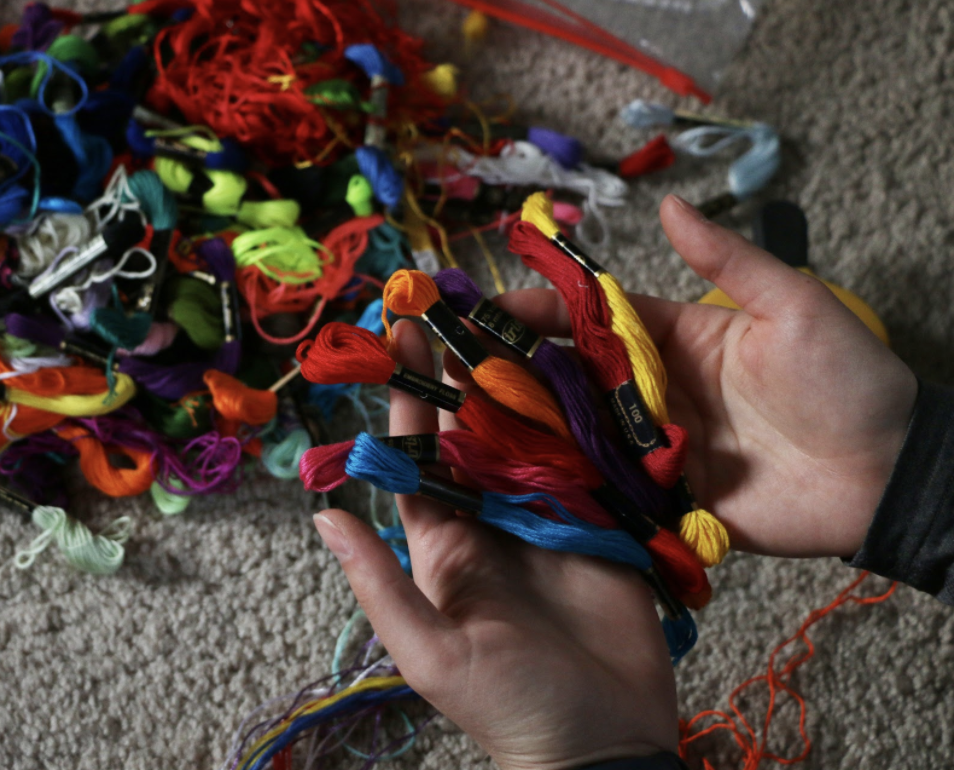
By Victoria Bradford
I’ve always thought of myself as a person whose steady self care routine could get me through anything. Nothing has disillusioned me more than the recent turn of events as a result of the COVID-19 pandemic. Once I found myself stuck in my bedroom with limited contact to the outside world, all of my routines went out the window. As soon as I came to the realization that I was up the creek without a paddle, I began writing an email to my therapist with the subject line, “Please help I think I am going crazy.”
These unforeseen times come with uncertainty and anxiety for many. Self care is one of the first things we abandon as we adjust, said Rebecca Schubert, a registered dietitian and the Well Being Coordinator of the Green Mountain Higher Education Consortium. This can take a toll on not only our mental health, but our overall well being.
Like many of my friends, I want to use the best ways to take care of myself, so I went to a few experts, and asked Schubert and David Boyton, who teaches Positive Psychology at St. Michael’s College, to offer a few tips and perspectives.
“Acute stress can lead to poor physical and mental health and more interpersonal conflict in the long run,” Boynton said in a recent email interview. “It is imperative that we manage our stress through meditation, relaxation techniques, effective coping techniques, exercise, sleep, and eating well.”
There are many ways to take care of yourself inside your home. The first step is recognizing what you need as far as self care since everyone’s needs can be different. Don’t worry if you have a packed schedule and think you don’t have time for a regular self care routine. Schubert says that even a small investment each day can lead to a full mental recharge over time, even if you only allocate 10 minutes a day.

Gathering paint supplies to create images is a great way that you can bring joy to yourself and
other people.
Yoga
Gyms and in-person fitness classes are on hold, but yoga is a wonderful way to take care of not only your mental well being but also your physical well being, and you can do it from home. Downward Dog is a popular yoga app that typically has a monthly subscription cost, but due to the current situation all of their lessons are free until May 1. There is also a guided Saint Michael’s yoga class provided through Bergeron Wellness Center on Zoom. To tune in, follow @bergeroncounseling on Instagram and classes are held on Tuesdays from 6:30 to 7:30 p.m. Check the resources link on the Bergeron information page for other services they’re providing .

Colorful embroidery strings can be used in many crafts such as making friendship bracelets.
Release the beast–head outside
Social distancing can include going out to get fresh air as long as we’re staying the recommended six feet apart. According to a study by University of East Anglia, spending time outside has many health benefits and stress reduction is one of them. Schubert says taking just 10 minutes for a few walks every day can have a huge positive impact on our mental health.
Break the viral info
“Research suggests that as people read more about the virus on social media, their perception of the risks tends to increase,” Boynton said. “This differs from the effects of traditional media. Moreover, the amount of media exposure of any kind can increase distress. The goal should be to stay informed, while being mindful of the amount of time spent taking in the news.”
Schubert recommends we become more aware of the media we are taking in through proactivity of a “media diet.” Be conscientious of your exposure and limit the time spent with the news in the background. You can find reputable information on the COVID-19 situation on the CDC, WHO, and NIH websites.
Stay close to friends and family through online platforms
Connecting in a way that is meaningful will help alleviate the symptoms of loneliness, Schubert said. You can go the “old fashioned” route and pick up the phone and talk to loved ones, or you can use the new tools for connectivity that have been developed for this time like Netflix Party which allows you to join a group online and watch Netflix at the same time. It isn’t the same as sitting in a common room with your roommates binge-watching your favorite series, but it helps.
While separation is important to keep the virus under control, Boynton noted the dangers of long term quarantines. “Quarantines and isolation may increase negative outcomes, such as post-traumatic stress symptoms, confusion, and anger. The recommendation is that officials keep quarantines as short as possible.” But he added that while the length of time we spend social distancing is out of our control, the way we react is within our control.
My therapist quickly responded to my panic filled email. She reminded me that self care progress isn’t always linear, and it’s often two steps forward one step back. With her support, I now adjust to my new circumstances through altering my established routines in a way that makes sense in my current reality.
At the end of our interview, Schubert left me with a quote from Viktor Frankl, an Austrian neurologist, that is more relevant now than ever:
“Between stimulus and response, there is a space. In that space is our power to choose our response. In our response lies our growth and our freedom.”

